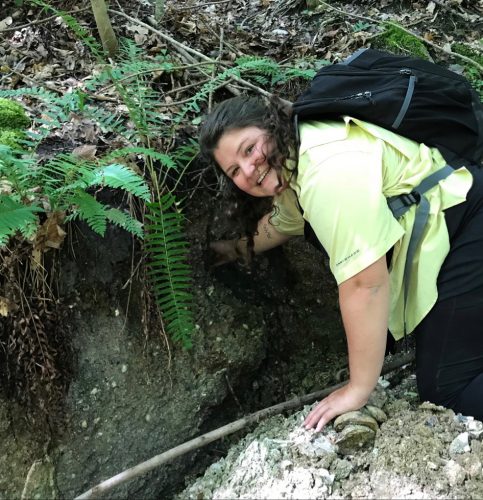Clams are a popular food choice in Southwest Florida. Clam chowder, seafood pasta, stuffed clams – the delicious options are seemingly endless! Because of our desire to consume clams, the hard clam, Mercenaria, heavily contributes to shell fisheries’ stocks in the United States.

So what is going to happen to this economically and ecologically important species with changing climate conditions, such as an increase in seawater temperature?
One way to determine their response to warming temperatures is to compare growth rates and lifespans of fossil and modern Mercenaria across a latitudinal gradient from cold and warm climate conditions. To do this, I collect fossil Mercenaria shells from both mid-Pliocene (3.3 – 3 million years ago, warm climate) and early Pleistocene (2.58 – 0.78 million years ago, cool climate) deposits in Florida, North Carolina and, Virginia. I have also been collecting living Mercenaria along the coast at similar latitudes.
Once back at the lab, we cut the shells in half to expose the light and dark increments that we use to measure annual growth rate and age, much like what scientists who study tree rings do. I will be comparing those life history measurements within and among modern and fossil populations in the context of warm versus cold climates.
Mercenaria complete a fascinating multi-stage metamorphosis going from life as a microscopic creature with cilia, to a tiny one with lobes for swimming, to one possessing a hard shell living on the bottom. Bivalve shellfishing contributes over $1 million annually to the US marine fisheries industry.
This summer, Randell Research Center (RRC) volunteers helped collect living Mercenaria from Pine Island Sound. Shells collected by the RRC volunteers will serve as a modern Florida population, and their life history will be compared to fossil and other modern Mercenaria collected for this study. Findings will contribute to a larger conservation paleobiology project funded by the National Science Foundation that will further our understanding of the biological response of economically and ecologically important marine clams during projected future warming of seawater.